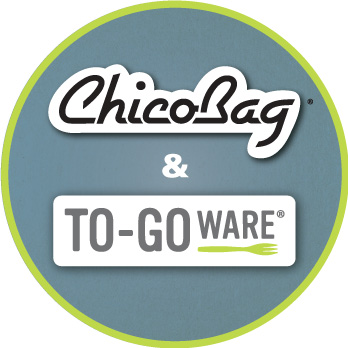



ChicoBag & To-Go Ware

California, United States
October 2013
Other/general wholesale trade
Wholesale/Retail
United States
Since 2005, we have helped millions of people bag their single-use habits by offering a wide variety of high-quality, responsibly made reusable solutions for every lifestyle. As a B-Corp, 1% For The Planet Member and a business that completely offsets their carbon by being Climate Neutral Certified, we make it easy to exchange wasteful, single-use bags, utensils, and containers for high quality, long-lasting reusable products, that empower you to protect our planet from pollution and preserve its beauty for generations to come. For one person, simply deciding to swap out single-use bags and utensils from his or her life has the potential to remove tens of thousands of single-use items from ever being used and ChicoBag’s culture thrives on zero-waste. Office waste is weighed and tabulated monthly. Compost is processed by a flock of company chickens. The company has a take-back program that accepts all types of bags from the public, functional or not. They also work with food banks to redistribute the functional bags to those in need and find organizations who can repurpose the others into useful products such as woven rugs. ChicoBag will continue to innovate, challenge the status-quo, and provide the world with ideas and products that help make bagging the single-use habit easy.
Overall B Impact Score
Governance 16.9
Governance evaluates a company's overall mission, engagement around its social/environmental impact, ethics, and transparency. This section also evaluates the ability of a company to protect their mission and formally consider stakeholders in decision making through their corporate structure (e.g. benefit corporation) or corporate governing documents.
What is this? A company with an Impact Business Model is intentionally designed to create a specific positive outcome for one of its stakeholders - such as workers, community, environment, or customers.
Governance 16.9
Governance evaluates a company's overall mission, engagement around its social/environmental impact, ethics, and transparency. This section also evaluates the ability of a company to protect their mission and formally consider stakeholders in decision making through their corporate structure (e.g. benefit corporation) or corporate governing documents.
What is this? A company with an Impact Business Model is intentionally designed to create a specific positive outcome for one of its stakeholders - such as workers, community, environment, or customers.
Workers 21.1
Workers evaluates a company’s contributions to its employees’ financial security, health & safety, wellness, career development, and engagement & satisfaction. In addition, this section recognizes business models designed to benefit workers, such as companies that are at least 40% owned by non-executive employees and those that have workforce development programs to support individuals with barriers to employment.
Community 20.4
Community evaluates a company’s engagement with and impact on the communities in which it operates, hires from, and sources from. Topics include diversity, equity & inclusion, economic impact, civic engagement, charitable giving, and supply chain management. In addition, this section recognizes business models that are designed to address specific community-oriented problems, such as poverty alleviation through fair trade sourcing or distribution via microenterprises, producer cooperative models, locally focused economic development, and formal charitable giving commitments.
Environment 65.7
Environment evaluates a company’s overall environmental management practices as well as its impact on the air, climate, water, land, and biodiversity. This includes the direct impact of a company’s operations and, when applicable its supply chain and distribution channels. This section also recognizes companies with environmentally innovative production processes and those that sell products or services that have a positive environmental impact. Some examples might include products and services that create renewable energy, reduce consumption or waste, conserve land or wildlife, provide less toxic alternatives to the market, or educate people about environmental problems.
What is this? A company with an Impact Business Model is intentionally designed to create a specific positive outcome for one of its stakeholders - such as workers, community, environment, or customers.
Customers 4.0
Customers evaluates a company’s stewardship of its customers through the quality of its products and services, ethical marketing, data privacy and security, and feedback channels. In addition, this section recognizes products or services that are designed to address a particular social problem for or through its customers, such as health or educational products, arts & media products, serving underserved customers/clients, and services that improve the social impact of other businesses or organizations.